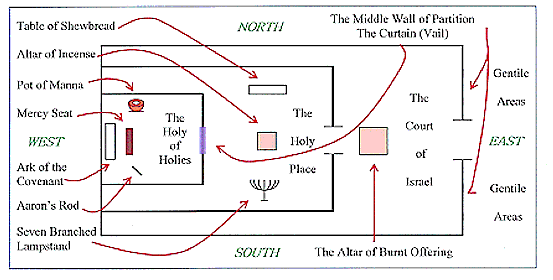
[Listen to an audio version here]
It’s a new year. Even if you haven’t thought about it yet, you have a whole new year ahead of you to do good. Let’s not waste it.
As we turn to the book of 2 Chronicles, we find the stories of 20 kings of Judah and King Solomon. Each story is different. As the reign of each king began, they had a fresh start. Some had a godly father and a good example to follow. Others had an evil father and a terrible example to follow. At the beginning of each reign, each king had to ask, what am I going to do with my reign? “I am in charge,” they might say, “and I have responsibility to do something for my kingdom.” What would they do? A whole reign in front of them. How would they rule? A whole year in front of us, how will we live it?
The Background of Asa’s Story
The story of 2 Chronicles begins with a united kingdom of Israel under the reign of King Solomon. In many ways, the reign of Solomon was full of splendor and wonder. It was a brilliant reflection of the glory of the future reign of Jesus Christ.
On the other hand, Solomon’s reign had some real problems. It was oppressive and demanded a lot from the Israelites. When Solomon died, his son Rehoboam took the throne. The people asked him to lighten their load. Rehoboam had a choice to make. The ball was now in his court. What would he do? How would he rule?
The older counselors from Solomon’s time urged him to listen to the people. The younger men with whom he had grown up with said that he should not. He listened to the younger men, and the result was that the northern tribes revolted from the house of David. Instead of one kingdom, there was now two. The northern kingdom was called Israel. The southern kingdom was called Judah. The house of David reigned over the land of Judah, and the book of 2 Chronicles tells the story of this kingdom from the reign of Rehoboam in the 10th century B.C. until the fall of the kingdom to King Nebuchadnezzar of Babylon in 587.
One thing Rehoboam had going for him was that he had the temple and the true worship of God. Jeroboam, the first king of Israel, set up an alternative temple with a golden calf and his own priesthood. As a result, many people emigrated from the norther kingdom, Israel, and came to live in the southern kingdom. We read, “They strengthened the kingdom of Judah and supported Rehoboam son of Solomon three years, following the ways of David and Solomon during this time” (2 Chron. 11:17).
Then, things turned around. “After Rehoboam’s position as king was established and he had become strong, he and all Israel with him abandoned the law of the Lord” (2 Chron. 12:1). The book of 2 Kings tells us that “Judah did evil in the eyes of the Lord. By the sins they committed they stirred up [God’s] jealous anger more than those who were before them had done” (1 Kings 14:22). So, Rehoboam had the temple and the true worship, but it did him no good because he did not embrace it with faith.
Rehoboam’s son Abijah reigned in his place. The book of 2 Chronicles does not make a pronouncement about him, but the book of 1 Kings tells us, “He committed all the sins his father had done before him; his heart was not fully devoted to the Lord his God, as the heart of David his forefather had been” (1 Kings 15:3). Abijah and Rehoboam both did some things right, but their reigns were not characterized by seeking the Lord.
The Good Part of Asa’s Story
The next in line was Asa, the great grandson of King Solomon. What was Asa going to do? Would he go back to the ways of his Great-Great Grandfather David, or would he follow in the ways of Rehoboam and Abijah?
The name Asa means “doctor” or “healer,” and he brought healing to the land. “Asa did what was good and right in the eyes of the LORD his God” (2 Chron. 14:2). Asa did what was right and good in the eyes of the Lord. What does that entail?
1. He devoted himself to the worship of God. “He removed the foreign altars and the high places, smashed the sacred stones and cut down the Asherah poles” (2 Chron. 14:3). Because of the proliferation of idols in Judah, the temple of the Lord had fallen into disrepair. “[Asa] repaired the altar of the Lord that was in front of the portico of the Lord’s temple” (2 Chron. 15:8). Note carefully that he repaired the altar. This was a recognition that they needed an atoning sacrifice to seek the Lord. Whenever we read of the temple, we need to think about Christ and His sacrifice because that is what it pointed to.
2. He devoted himself to the community of God. Notice that he did not simply think about himself. “He commanded Judah to seek the Lord, the God of their ancestors, and to obey his laws and commands” (2 Chron. 14:4). When he repaired the temple, he gathered everyone together to renew their commitment to the Lord. “They entered into a covenant to seek the Lord, the God of their ancestors, with all their heart and soul” (2 Chron. 15:12).
3. He devoted himself to the duty given by God. He was called to be king. This meant he was supposed to lead the people in the right direction. He was also supposed to defend the nation from its enemies and give them deliverance. The land had rest from enemies during most of Asa’s reign, but he did not waste the time given to him. He said, “Let us build up these towns and put walls around them, with towers, gates and bars” (2 Chron. 14:7). In addition, he equipped his army “with large shields and with spears . . . [and] with small shields and with bows” (2 Chron. 14:8). “So, they built and prospered” (2 Chron. 14:7).
4. He relied on the power of God. Even though he built up the army and built walls around the cities, he did not rely on them. Inevitably, an enemy came to attack Judah. In this case, it was Zerah, the Cushite, from Africa (2 Chron. 14:9). When the enemy came upon him, he prayed, “Lord, there is no one like you to help the powerless against the mighty. Help us, Lord our God, for we rely on you, and in your name we have come against this vast army. Lord, you are our God; do not let mere mortals prevail against you” (2 Chron. 14:11). The Lord heard him, and “they were crushed before the LORD and his forces.” Asa had strength, but he relied on God as his ultimate hope.
At that point, God sent a prophet, Azariah son of Obed, to encourage Asa. He said, “Listen to me, Asa and all Judah and Benjamin. The LORD is with you when you are with him. If you seek him, he will be found by you, but if you forsake him he will forsake you” (2 Chron. 15:2). What this meant was that Asa should not give up doing what He was doing. Even if they had sinned against the Lord, they could humble themselves and find grace and forgiveness. Asa was on the right track, so God told him through Azariah, “as for you, be strong and do not give up, for your work will be rewarded” (2 Chron. 15:7).
The Tragedy of Asa’s Story
The words “do not give up” turned out to be rather poignant. Unfortunately, Asa’s very good start was not the end of the story. Asa did many more good things, so much so that the text can say that “he was committed to the Lord all his life.” Now, by “all his life,” the text clearly means, “consider the whole of his life.” At the end, Asa had a total breakdown. He did give up. What happened?
Baasha, King of Israel, began to prepare for war and stop people from emigrating to Judah. Asa began to feel anxiety. There is a close connection between anxiety and sin. Much of our sin is rooted in anxiety. Now, let me be clear here. There is nothing wrong with anxiety as such. Anxiety is the emotion we get in the face of a threat. The question is always, what do we do with our anxiety?
In this case, Asa did not turn to the Lord. Instead, he sought the help of Ben Hadad, King of Aram, modern day Syria. The result was apparently successful. Ben Hadad attacked, and Baasha withdrew. However, success is not always success. It is not enough to get the right result. We have to do it the right way. God sent Hanani the seer or prophet to him and said,
Because you relied on the king of Aram and not on the Lord your God, the army of the king of Aram has escaped from your hand. Were not the Cushites and Libyans a might army with great numbers of chariots and horsemen? Yet when you relied on the Lord, he delivered them into your hand. For the eyes of the Lord range throughout the earth to strengthen those whose hearts are fully committed to him. You have done a foolish thing, and from now on you will be at war (2 Chron. 16:7–9).
Asa had done so well, but he did not continue doing good unto the end.
After that, things got worse. Asa did not humble himself. At the end, Asa got a disease in his feet. Even this did not humble Asa, “Though his disease was severe, even in his illness he did not seek help from the LORD, but only from the physicians” (2 Chron. 16:12). Notice that it does not say that it was wrong for him to seek the physicians. Rather, it was wrong to seek the physicians and not “seek help from the Lord.” The next year, Asa died.
Lessons from Asa’s Story
What are we to make of this story? First, we should see these kings as pointers to Christ. David had intended to build a house for God’s name, but God had told him that his son Solomon would build the temple:
. . . you will have a son who will be a man of peace and rest, and I will give him rest from all his enemies on every side. His name will be Solomon, and I will grant Israel peace and quiet during his reign. He is the one who will build a house for my Name. He will be my son, and I will be his father. And I will establish the throne of his kingdom over Israel forever (2 Chron. 22:9–10).
Solomon did build the temple, but this passage clearly refers to someone greater. It refers to the one who will reign over the house of David forever, which Solomon did not. This passage ultimately refers to the one whom the angel announced to Mary as King whose kingdom would have no end. 2 Chron. 22:9–10 shows us the connection between these kings and the great future king, our Lord Jesus Christ.
The evil kings show us our need for a better king. The good kings show us something of the goodness of the reign of Christ but in their weakness and death make us long for that coming king.
Consider Christ in relation to Asa. Christ seeks the Lord all his life. Christ defends His people from enemies. Christ walks before the Father and seeks Him. Christ renews His people in the worship of the Lord. Christ provides an altar and a sacrifice for His people by sacrificing Himself. The good in King Asa points to Christ.
However, though Asa in some ways points to Christ, he also points to us. We need to learn lessons from him about how live our lives. What are they? First, are we committing to seeking the Lord? What labor and effort are we putting into our relationship with the Lord? Is it a priority? When we seek the Lord, we will be found by Him.
Second, are we walking in humility before the Lord? One thing that Asa should teach us is our need for humility. We are dependent on God. Even our seeking of God is dependent on God. We need His help. Are we relying on ourselves for success in our homes, our business, our finances, our work, our community, our politics, or are we walking before the Lord in humility and seeking his blessing? As the Psalmist puts it, we need to build the building but always remember that unless the Lord builds the house, he labors in vain who builds it.
Third, what are we doing with anxiety? Why did Asa fail to persevere in seeking the Lord? He let anxiety control him. Anxiety is inevitable, but what are we doing with it? Are we bringing it before the Lord? Are we seeking those who will encourage us? Or are we seeking our own solution to it independent from the Lord or simply withdrawing from life? We’ve got to watch our fears and keep them continually before the Lord.
Fourth and finally, are we letting good times and success go to our head? After we experience success over a long period of time, it’s easy to think we are the source of it. That’s what Asa did. Moses warned the people about this:
When you have eaten and are satisfied, praise the Lord your God for the good land he has given you. Be careful that you do not forget the Lord your God . . . You may say to yourself, “My power and the strength of my hands have produced this wealth for me.” But remember the Lord your God, for it is he who gives you the ability to produce wealth, and so confirms his covenant, which he swore to your ancestors, as it is today (Dt. 8:10–11a, 17–18).
If times are going well, if you are feeling like you’ve succeeded, watch out! You may forget the Lord your God. Hard times produce many temptations, but good times often produce many more.
And so, as we begin this new year, let us recommit ourselves to the Lord, to continue seeking him. Let us not grow weary in doing good, for we shall reap a harvest, if we do not give up.



